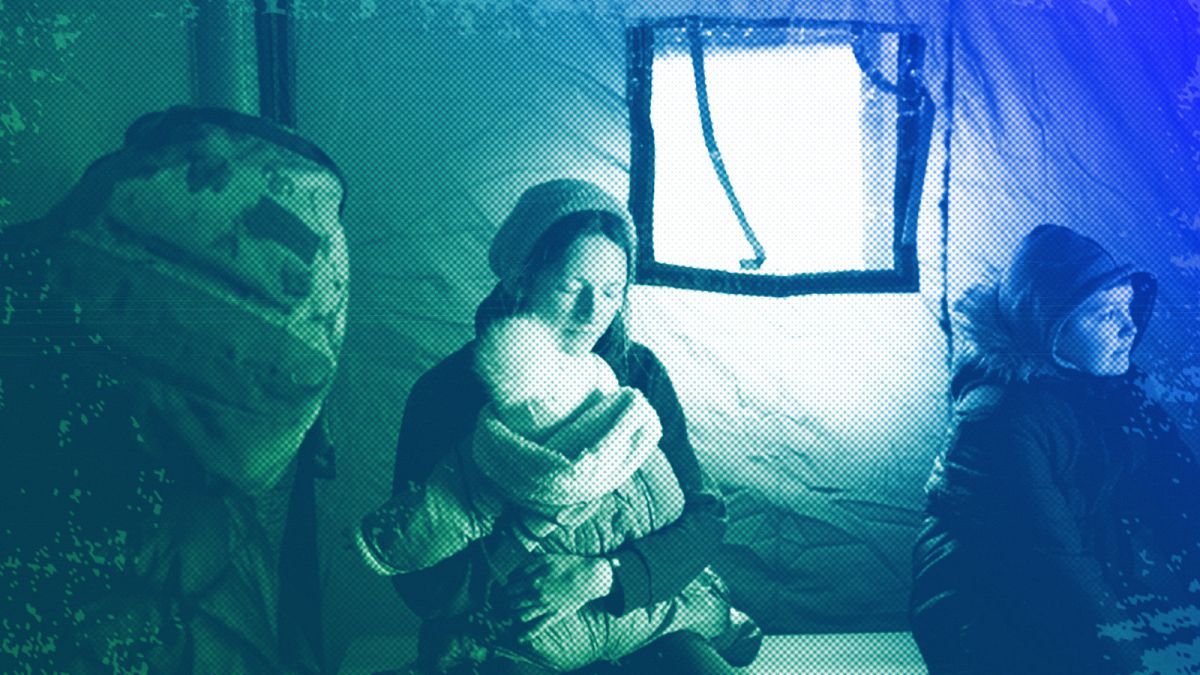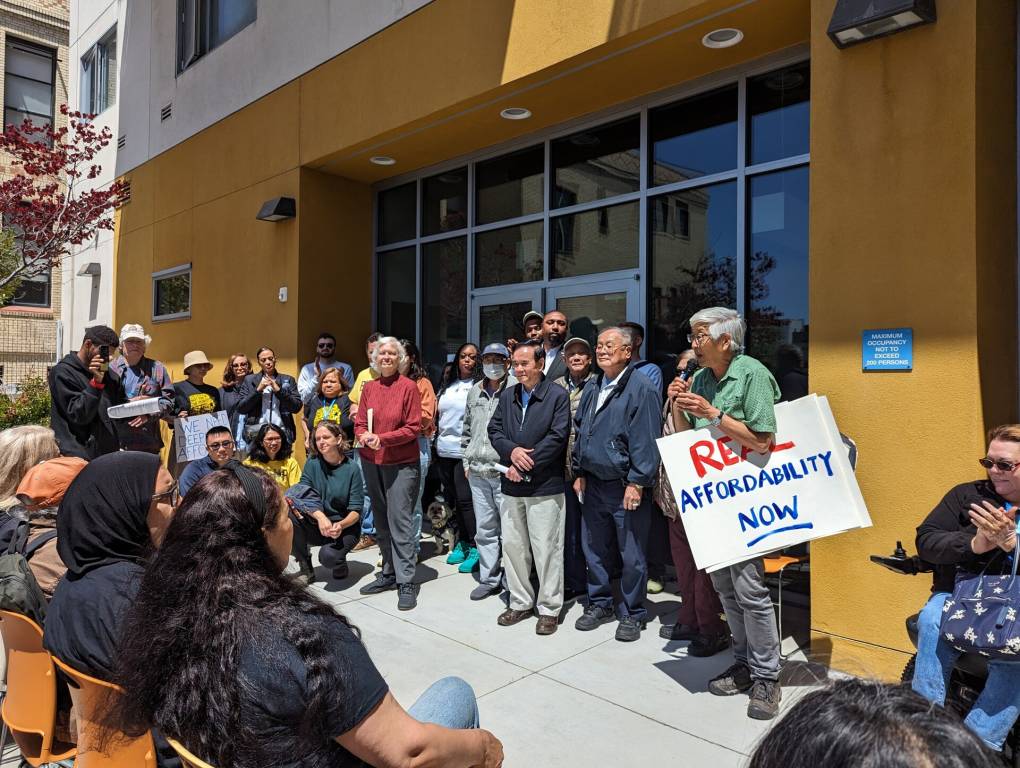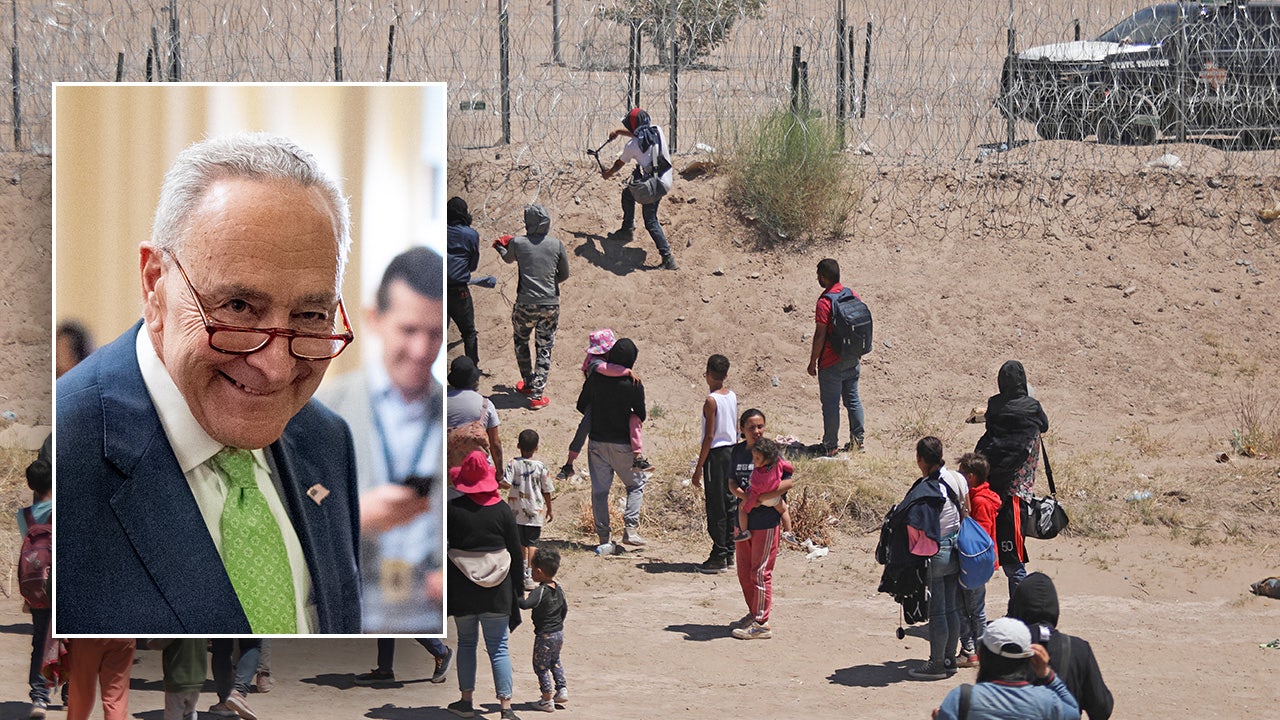World
No EU country will be 'left alone' to cope with migration: Johansson
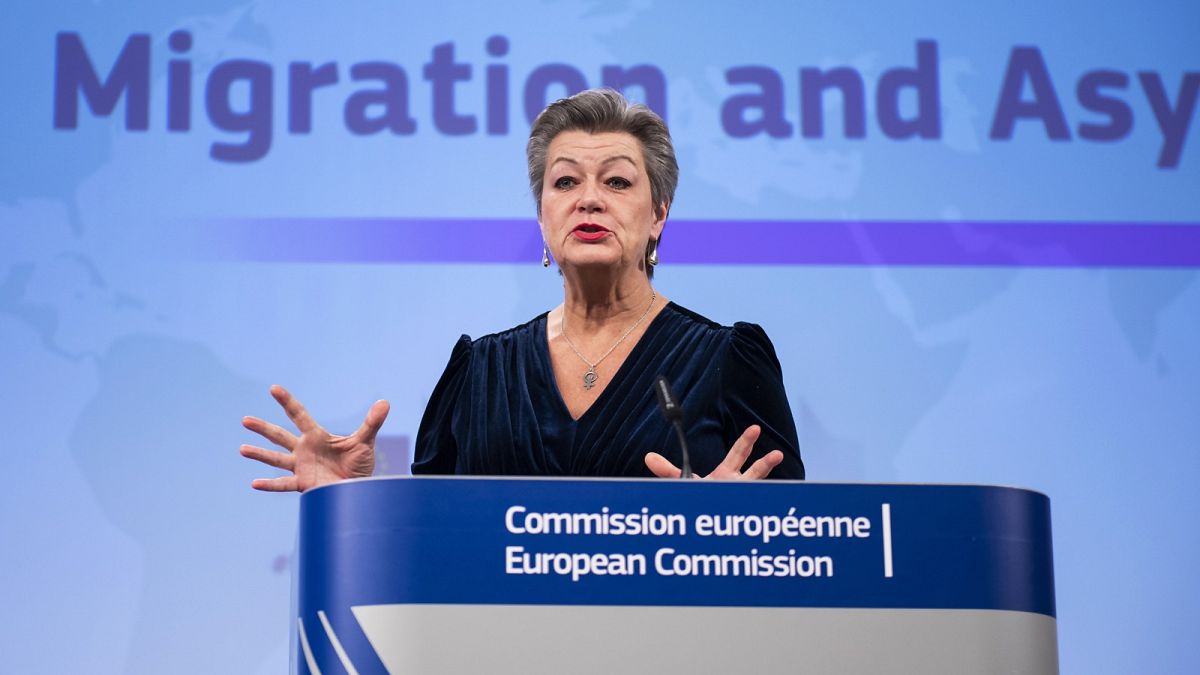
The reform of the European Union’s migration policy means that no country will be “left alone” to cope with irregular arrivals, says Ylva Johansson.
Johansson spoke with Euronews after member states and the European Parliament reached a provisional deal on the New Pact on Migration and Asylum, a holistic overhaul that foresees predictable, clear-cut rules to receive and relocate asylum seekers.
The five-pronged initiative aims to turn the page on years of bitter debates that saw governments take unilateral and uncoordinated measures, creating an ad-hoc crisis response that often led to chaotic, disturbing scenes at the borders.
The agreement was hailed as “historic” by the leaders of the EU institutions, who seek to establish collective decision-making in an area crucial for the bloc’s security. Humanitarian organisations were quick to denounce the compromise, warning it will degrade the asylum process and risk normalising arbitrary detention.
“In many aspects, all of them mostly, this is the first time that we have a comprehensive Europeanised migration and asylum policy that has been agreed with such a broad majority,” the European Commissioner for Home Affairs told Euronews.
“This will mean that we are protecting the right to apply for asylum better, that we are protecting individuals and their living conditions for asylum seekers better, that we will have swifter processes not leaving people in limbo for a long time,” she added.
“We will also have a mandatory solidarity mechanism that makes sure that no member state under pressure will be left alone.”
The agreement on the New Pact materialised on Wednesday morning after marathon talks that stretched for three days, in which Johansson personally participated. The amended text still needs to undergo formal ratification by the Parliament and the Council before becoming enforceable.
Not long ago, the breakthrough seemed unattainable. After its presentation in September 2020, the New Pact was subject to extensive criticism and scepticism, with many in Brussels wondering if the legislation would ever make it through.
But a fresh political momentum, which began earlier this year and steadily grew, allowed the negotiations to gather pace and reach a successful conclusion.
“We have rebuilt trust between member states. We have seen a lot of much more cooperation and much more mutual trust,” Johansson said.
“Member states realise that working alone (and)trying to tackle the migration challenge alone is a lose-lose situation. But when we work close together, supporting each other, then there is a win-win situation and all member states are stronger and the whole European Union is stronger.”
One of the most important novelties under the New Pact is a system of “mandatory solidarity” that will offer governments three options to manage migration flows: relocate a certain number of asylum seekers, pay a contribution for each claimant they refuse to relocate, and finance operational support, such as facilities and technical equipment.
The provisional deal foresees a target of 30,000 relocations per year.
Johansson said the system would help countries “under pressure,” mainly frontline nations like Italy, Greece and Spain, and insisted it would never impose forced relocation.
But, she added, the road to tackle migration does not end with the New Pact. The bloc still needs to do more to fight human smuggling in the Mediterranean Sea and ensure third countries take back the asylum seekers whose applications have been refused.
In the third quarter of this year, over 107,000 non-EU nationals were asked to leave but only 27,000 were successfully returned.
“We need to work with countries of origin and countries of transit along the routes to prevent these dangerous journeys from taking part in the first place,” Johansson said.
“And then I would like to add, we need to step up legal pathways to come to the European Union. We are an aging society. We also need migrants, but they have to come in an orderly and safe way.”

World
Live Updates: ‘Technical Failure’ Caused Helicopter Crash That Killed Iran’s President, State News Agency Reports
The deaths of Iran’s president, Ebrahim Raisi, and foreign minister left the country without two of its most influential figures at a moment of regional and domestic tumult. Funeral services will be held in three cities from Tuesday through Thursday, the state media said.
World
Denmark turns to Kosovo to alleviate its overcrowded prison system in $217 million deal
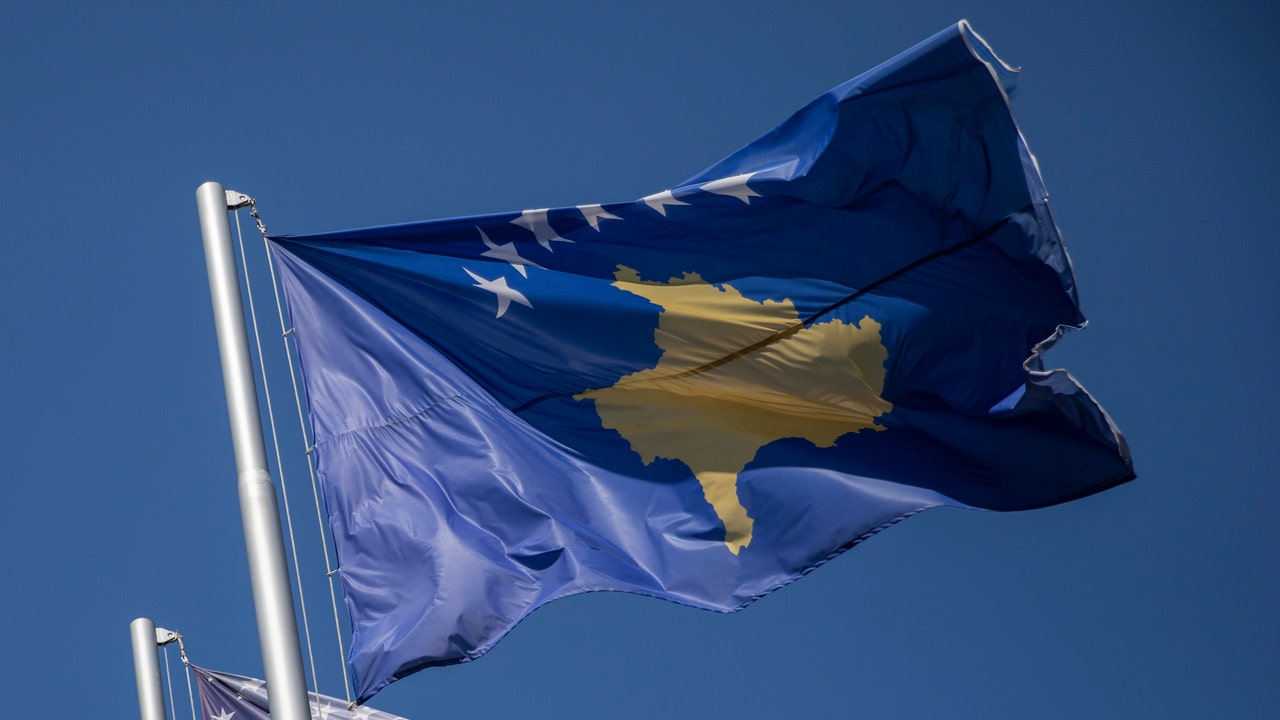
Kosovo’s Cabinet renewed efforts with a new draft law on renting a prison in the south of the country to Denmark to help it cope with its overpopulated prison system, an official said Monday.
The first draft of the law failed to pass at the parliament last week. But on Sunday, the Cabinet approved a draft law on 300 cells at the prison in Gjilan, 50 kilometers (30 miles) south of the capital Pristina, to be rented to Denmark, based on a a 10-year agreement that the two governments signed in April and May 2022, government spokesman Perparim Kryeziu said.
FORMER KOSOVO INFRASTRUCTURE MINISTER GETS 44 MONTHS FOR OVERSPENDING ON ROAD PROJECT
“The Cabinet approved it (the draft law) again yesterday (Sunday) so that it passes on to the Assembly (the parliament) to be voted on again,” he said.
An official in Kosovo says the Cabinet has renewed efforts with a new draft law on renting a prison in the south of the country to Denmark to help it cope with its overpopulated prison system. (Photo by Ferdi Limani/Getty Images)
Last week, the draft law got 75 votes, not reaching at least 80, or two-thirds of the 120-seat parliament as required to pass.
Kosovo will be paid 200 million euros ($217 million) that will be spent on the country’s correctional institutions and renewable energy projects.
According to the plan, Denmark won’t be able to send inmates convicted of terrorism or war crimes, or mentally ill prisoners. A Danish warden will run the 300-cell facility, accompanied by an Albanian one and other local staff.
Kosovo’s prison system has a capacity of up to 2,800. It wasn’t immediately possible to find out the current number of vacancies.
Neighboring Albania has agreed to hold thousands of asylum-seekers for Italy.
World
'The new Ursula': How von der Leyen learned to stop worrying and love Meloni
By embracing those who advocate for the erosion of democracy, VDL now aligns with figures who cloak themselves as quintessential Europeanists, ready to steer Europe through its future policy challenges. What could possibly go wrong, Giorgios Samaras writes.
-

 News1 week ago
News1 week agoSkeletal remains found almost 40 years ago identified as woman who disappeared in 1968
-

 Movie Reviews1 week ago
Movie Reviews1 week ago“Kingdom of the Planet of the Apes”: Disney's New Kingdom is Far From Magical (Movie Review)
-

 World1 week ago
World1 week agoIndia Lok Sabha election 2024 Phase 4: Who votes and what’s at stake?
-

 World1 week ago
World1 week agoUkraine’s military chief admits ‘difficult situation’ in Kharkiv region
-

 Politics1 week ago
Politics1 week agoTales from the trail: The blue states Trump eyes to turn red in November
-

 World1 week ago
World1 week agoBorrell: Spain, Ireland and others could recognise Palestine on 21 May
-

 World1 week ago
World1 week agoCatalans vote in crucial regional election for the separatist movement
-

 Politics1 week ago
Politics1 week agoNorth Dakota gov, former presidential candidate Doug Burgum front and center at Trump New Jersey rally

